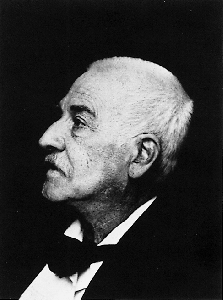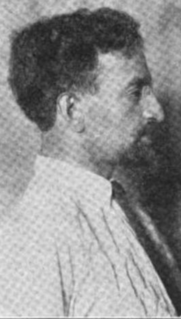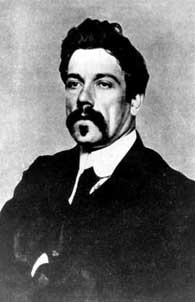A Quote by William O. Douglas
The struggle is always between the individual and his sacred right to express himself and the power structure that seeks conformity, suppression, and obedience.
Related Quotes
There is the great, silent, continuous struggle: the struggle between the State and the Individual; between the State which demands and the individual who attempts to evade such demands. Because the individual, left to himself, unless he be a saint or hero, always refuses to pay taxes, obey laws, or go to war.
The seventeenth century is everywhere a time in which the state's power over everything individual increases, whether that power be in absolutist hands or may be considered the result of a contract, etc. People begin to dispute the sacred right of the individual ruler or authority without being aware that at the same time they are playing into the hands of a colossal state power.
The right of ordinary citizens to possess weapons is the most extraordinary, most controversial, and least understood of those liberties secured by Englishmen and bequeathed to their American colonists. It lies at the very heart of the relationship between the individual and his fellows, and between the individual and his government.
The little individualist, recognizing his individual impotence, realizing that he did not possess within himself even the basis of a moral judgement against his big brother, began to change his point of view. He no longer hoped to right all things by his individual efforts. He turned to the law, to the government, to the state.
History is the long struggle of man, by exercise of his reason, to understand his environment and to act upon it. But the modern period has broadened the struggle in a revolutionary way. Man now seeks to understand, and act on, not only his environment, but himself; and this has added, so to speak, a new dimension to reason and a new dimension to history.
I must be frank in my feeling that a notable heresy has come into being throughout our evangelical Christian circles -- the widely accepted concept that we humans can choose to accept Christ only because we need Him as Saviour and that we have the right to postpone our obedience to Him as Lord as long as we want to... The truth is that salvation apart from obedience is unknown in the sacred scripture... Apart from obedience, there can be no salvation, for salvation without obedience is a self-contradictory impossibility.
All true obedience comes from the heart. It was heart work with Christ. And if we consent, He will so identify Himself with our thoughts and aims, so blend our hearts and minds into conformity to His will, that when obeying Him we shall be but carrying out our own impulses. The will, refined and sanctified, will find its highest delight in doing His service. When we know God as it is our privilege to know Him, our life will be a life of continual obedience. Through an appreciation of the character of Christ, through communion with God, sin will become hateful to us.
Civil rights are those which appertain to man in right of his being a member of society. Every civil right has for its foundation some natural right pre-existing in the individual, but to the enjoyment of which his individual power is not, in all cases, sufficiently competent. Of this kind are all those which relate to security and protection.
As a man has no right to kill one of his children if it is diseased or insane, so a man who has made the gradual and conscious expression of his personality in literature the aim of his life, has no right to suppress himself any carefully considered work which seemed good enough when it was written. Suppression, if it is deserved, will come rapidly enough from the same causes that suppress the unworthy members of a man's family.


































